Ford Revises Dealer EV Requirements

In what could be a tacit admission the transition to electric vehicles is going approximately as smoothly as a Michigan secondary road, it is being reported that suits at the Blue Oval are rolling back some of the requirements demanded of dealers in order to shill EVs to customers.
According to those in the know at Automotive News, Ford is slashing the required dealer training on electron eaters in half, while also cutting the number of EV chargers a retailer must install. As an example, storefronts popping for the so-called Certified Elite badge of honor now need only install a trio of Level 2 chargers instead of the previous suggestion of five. As well, the requirement of building a burly Level 3 DC fast charger sometime before 2026 has been removed from the agreement altogether.
Meanwhile, dealers fronting for mere Certified (sans Elite) status are on the hook for just two Level 2 chargers, again down from the previous watermark of five. Deadlines for the work to be completed in either case has been pushed back to the end of next June. Supply chain and infrastructure problems are being blamed for the changes.
Of course, our readers in the B&B know the difference. These alterations smack to high heaven of dealer pushback, showing up in the form of loud declarations from Dealer Principals to Area Managers about cost, timing, and color of the showroom tiles. In fact, over two dozen dealers in the state of Illinois successfully pursued a legal case in which they argued the old program violated state franchise laws. As anyone with half a brain would expect, many complaints were lodged about the cost of Level 3 chargers, most of which can recharge an EV in jig time but can hoover up a six-figure invoice without blinking. Dealers apparently argued that slow Level 2 chargers were more than sufficient to keep new EVs full of juice for test drives.
It is worth noting that Level 2s are widely available from a host of different providers – both for commercial and residential installations – and are popping up quicker than kudzu in Kansas. Alert readers will also question how much language is in these agreements requiring dealers keep the chargers in good working order after installing them. If that caveat is not present, there’s every chance in the world those chargers - placed by unwilling dealers who also surely complain about giving away free electricity – will be deader than disco in no time.
[Images: Ford]
Become a TTAC insider. Get the latest news, features, TTAC takes, and everything else that gets to the truth about cars first by subscribing to our newsletter.

Matthew buys, sells, fixes, & races cars. As a human index of auto & auction knowledge, he is fond of making money and offering loud opinions.
More by Matthew Guy
Latest Car Reviews
Read moreLatest Product Reviews
Read moreRecent Comments
- Varezhka I have still yet to see a Malibu on the road that didn't have a rental sticker. So yeah, GM probably lost money on every one they sold but kept it to boost their CAFE numbers.I'm personally happy that I no longer have to dread being "upgraded" to a Maxima or a Malibu anymore. And thankfully Altima is also on its way out.
- Tassos Under incompetent, affirmative action hire Mary Barra, GM has been shooting itself in the foot on a daily basis.Whether the Malibu cancellation has been one of these shootings is NOT obvious at all.GM should be run as a PROFITABLE BUSINESS and NOT as an outfit that satisfies everybody and his mother in law's pet preferences.IF the Malibu was UNPROFITABLE, it SHOULD be canceled.More generally, if its SEGMENT is Unprofitable, and HALF the makers cancel their midsize sedans, not only will it lead to the SURVIVAL OF THE FITTEST ones, but the survivors will obviously be more profitable if the LOSERS were kept being produced and the SMALL PIE of midsize sedans would yield slim pickings for every participant.SO NO, I APPROVE of the demise of the unprofitable Malibu, and hope Nissan does the same to the Altima, Hyundai with the SOnata, Mazda with the Mazda 6, and as many others as it takes to make the REMAINING players, like the Excellent, sporty Accord and the Bulletproof Reliable, cheap to maintain CAMRY, more profitable and affordable.
- GregLocock Car companies can only really sell cars that people who are new car buyers will pay a profitable price for. As it turns out fewer and fewer new car buyers want sedans. Large sedans can be nice to drive, certainly, but the number of new car buyers (the only ones that matter in this discussion) are prepared to sacrifice steering and handling for more obvious things like passenger and cargo space, or even some attempt at off roading. We know US new car buyers don't really care about handling because they fell for FWD in large cars.
- Slavuta Why is everybody sweating? Like sedans? - go buy one. Better - 2. Let CRV/RAV rust on the dealer lot. I have 3 sedans on the driveway. My neighbor - 2. Neighbors on each of our other side - 8 SUVs.
- Theflyersfan With sedans, especially, I wonder how many of those sales are to rental fleets. With the exception of the Civic and Accord, there are still rows of sedans mixed in with the RAV4s at every airport rental lot. I doubt the breakdown in sales is publicly published, so who knows... GM isn't out of the sedan business - Cadillac exists and I can't believe I'm typing this but they are actually decent - and I think they are making a huge mistake, especially if there's an extended oil price hike (cough...Iran...cough) and people want smaller and hybrids. But if one is only tied to the quarterly shareholder reports and not trends and the big picture, bad decisions like this get made.



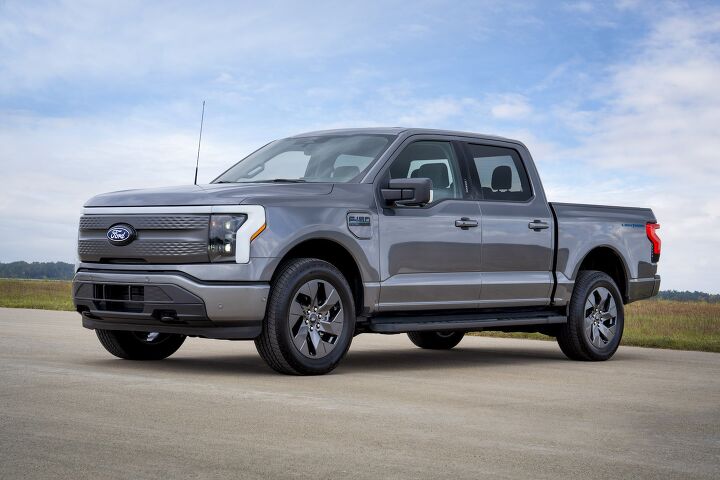















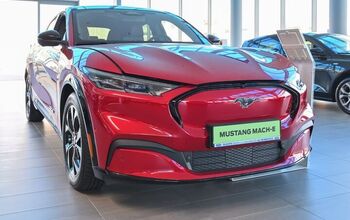
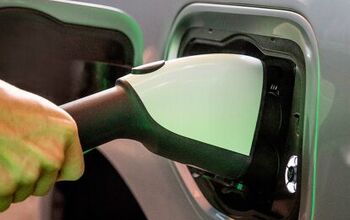
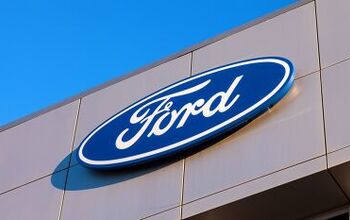
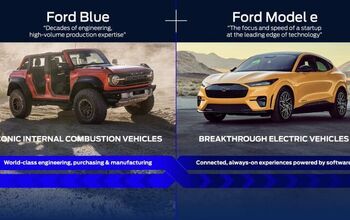











Comments
Join the conversation
Climate change - the undefinable term that just results in more government and less freedom.
where is Lido when you need him?